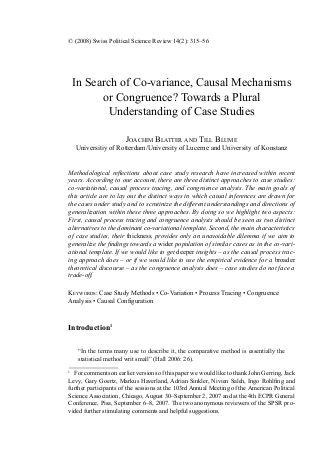
Methodological re ections about case study research have increased within recent years. According to our account, there are three distinct approaches to case studies: co-variational, causal process tracing, and congruence analysis. The main goals of this article are to lay out the distinct ways in which causal inferences are drawn for the cases under study and to scrutinize the different understandings and directions of generalization within these three approaches. By doing so we highlight two aspects: First, causal process tracing and congruence analysis should be seen as two distinct alternatives to the dominant co-variational template. Second, the main characteristics of case studies, their thickness, provides only an unavoidable dilemma if we aim to generalize the findings towards a wider population of similar cases as in the co-variational template. If we would like to get deeper insights – as the causal process tracing approach does – or if we would like to use the empirical evidence for a broader theoretical discourse – as the congruence analysis does – case studies do not face a trade-off.